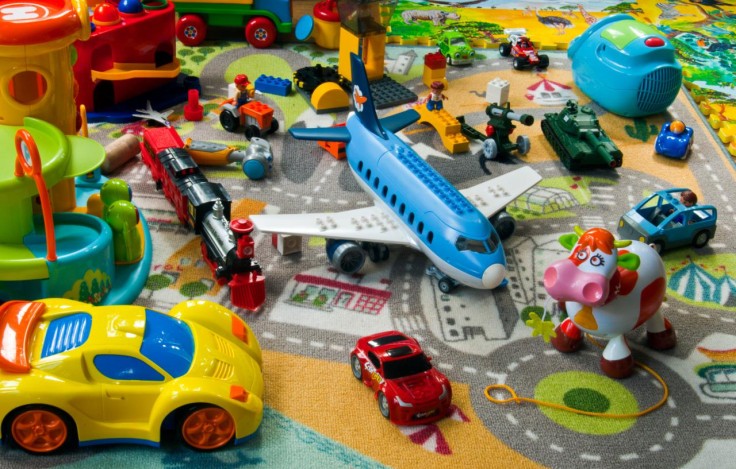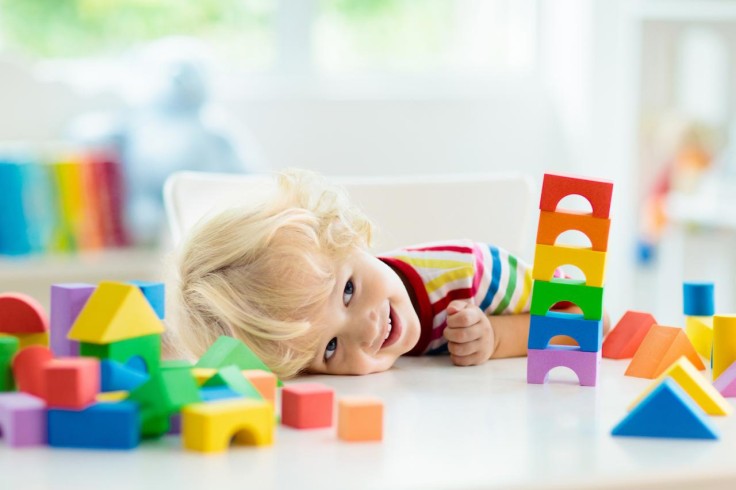
Before he became Father Christmas, a poor 11-year-old boy Nikolas (if you haven't read a truly magical tale A Boy Called Christmas by Matt Haig, it's high time to do it) had had only two toys. A sleigh his dad made for him and an ugly doll made out of a turnip. He had plenty of room for imagination and belief in incredible things, though. This story, albeit fictional, answers many parents' question: how many toys do my kids really need?
Contrary to popular belief (mostly infused by marketers), a child can grow into a fulfilled personality even without being surrounded by heaps of the world's coolest toys. Rather the opposite. Some conscious parents believe that a lack of toys can even stimulate the development of the child's skills and talents that would stay stifled otherwise. Of course, we cannot directly compare kids of those times and modern kids. Nikolas of our time would rather play with a free website builder for kids than a doll. However, let's think about how toys benefit our children and what happens if they get fewer of them.
Why do we buy toys for our kids?
As playing is kids' most favorite activity, toys seem to be an evident and integral component of the process. Indeed, they help our kids learn about themselves, the world they live in, and about relationships. They help lay the foundation of a child's values.
However, today, in the era of rampant consumerism, the importance of toys is exaggerated. A children's bedroom packed with toys to the ceiling is an image of a happy childhood obtruded by toy brands and whetted by little voracious YouTubers.
We need to separate marketing and parenting. Manufacturers of children's goods are manipulating every parent's desire to give our kids the best we can. Also, they play on our own selfishness. Let's be honest; we buy all of those expensive toys for ourselves (Hello, inner child!). As an option, we buy them to compensate for the time, love, and attention for our children.
Having a lot of toys is always good for parents. They make our lives easier by keeping our little ones busy. However, is having a lot of toys always good for the kids? No.
How having fewer toys benefits your child

1. A child becomes more creative
A toy is a finished creation, a completed image. If a child has too many toys, they have little room for imagination. One German kindergarten once did an experiment. They removed all toys from the classroom for three months to see what would happen. At first, children were bored, but soon they began to use their imagination and invented games using their basic classroom surroundings. Having fewer toys also make children more resourceful. They have nothing to do but learn how to solve their problems with what they have at hand. Imagination and resourcefulness (also referred to as the ability to think outside of the box) are precious gifts that can only be developed at childhood when the human brain is pliant. The only toy parents will never go wrong with is a piece of paper and a bunch of drawing supplies.
2. Lack of toys teaches kids focus and perseverance
You must have noticed that when children have too many toys, they become overly agitated and unable to focus. They move from one toy to another, losing a chance to fully "understand" and enjoy a single toy. If a toy is difficult to figure out, a child is likely to discard it for an easier one, giving up too soon. Toy minimalism makes kids more determined, patient, and persevering.
3. Fewer toys - fewer arguments
Against all logic, more toys won't resolve the eternal toy conflict between siblings. Rather the opposite -every new toy in the room will escalate it. Fewer toys teach children to collaborate and share, and parents get the desired peace.
3. Children with fewer toys learn to take care of things
Naturally, if kids have too many toys, they value them less. They know there will always be a replacement if they damage something. If you've got a little destroyer in your family, it's time to teach them a lesson by taking some toys away.
4. Kids develop better social skills
Children with fewer toys tend to have fun communicating with other kids or adults. Childhood friendships are very important as they lay the foundation for deep and strong relationships in adulthood. So, the best toy you can give your child today is... you.
5. Fewer toys - more room for a real adventure
Kids of the digital era are, for the most part, disconnected from nature. Limiting the number of toys, you encourage your child to spend more time outdoors exploring the world around them. I can't help thinking of Anne of Green Gables. I assume that Lucy Maud Montgomery's characters were all made up. However, they still were drawn from real children she had a chance to know. While I was reading, I was amazed by how kids of that time used to spend their days. They wandered around, exploring rural neighborhoods and had a solid knowledge of plants and birds (which is now considered as encyclopedic). Needless to say, they were physically stronger. We can't change the time we live in, but we still can invest in great and useful outdoor toys to lure our kids out of the house.
With fewer toys, your home will be tidier, and your kids will have more time for trying and loving new activities such as reading, art, sport, music, etc. The list can go on and on. However, the most important is that a healthy amount of toys will teach your child to dream and find joy in things that last.